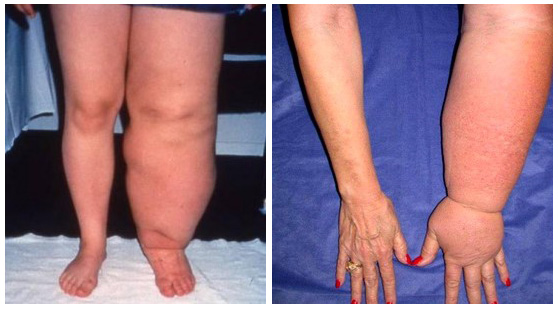Keck Plastic Surgeon Dr. Alex K. Wong Awarded NIH Research Grant to Study Treatment for Lymphedema
It's relatively rare for a practicing surgeon to receive major NIH research funding, a career advance for which Wong partly credits training and support he received through the SC CTSI.
As an associate professor at Keck School of Medicine of USC and an attending plastic surgeon specializing in microsurgery and reconstructive and cosmetic procedures, it would be easy for Alex K. Wong, MD, to spend virtually all his time in the operating room and the classroom. That's the typical career path for most practicing surgeons in academic settings, whose skills are so valuable to their institutions and patients.
It is not common for practicing surgeons include a large research component to their professional mix. But even before entering medical school Wong knew he wanted his focus to include science as well as clinical practice, a mix of interests that he pursued through several fellowships prior to his arrival at USC. His eventual recruitment by Keck School of Medicine was structured to allow him to continue work as a physician-scientist.
Recently, Wong advanced a giant step along this career path when the NIH awarded his application for a Mentored Clinical Scientist Research Career Development Award (also called a K08 award). The multiyear award is designed to help scientists build their own skills as career researchers as well as to pursue specific research questions.
Under the NIH grant, Wong will study lymphedema, an incurable complication of cancer treatment in which removal or damage to lymph nodes causes chronic swelling of extremities. The swelling can be disfiguring and debilitating, and significantly diminish overall health and quality of life for sufferers. Among those typically affected are breast cancer patients, as well as people treated for other types of cancer. It affects about 140 million people worldwide and about 5 million in the U.S.
"Because we're getting better at curing cancer, the number of people who suffer from lymphedema is likely to rise, so it's important that we understand it and learn to prevent or treat it," said Wong.
In addition to his role as Associate Professor of Surgery in the Division of Plastic and Reconstructive Surgery, with attending staff appointments at Keck Hospital of USC and LAC+USC Medical Center, Wong is Director of the USC Microsurgery Fellowship.
To pursue this research avenue, as well as to continue development as a clinical researcher, Wong received three years of researcher-specific training as a Clinical and Translational Research Scholar from the Southern California Clinical and Translational Science Institute (SC CTSI). The training (previously called KL2 scholarship) is one of many programs and services the SC CTSI provides to improve health research within the USC/CHLA research community and the greater Los Angeles community.
Wong has run a lab since 2009, but the new NIH grant provides a much higher level of funding. Only a few microsurgeons nationwide receive this type of support from the NIH. Wong said the coursework, mentorship and support he received from the SC CTSI played a key role in his successful grant application.
"I think the NIH looks favorably on KL2 training," he said. "Some specific exercises like the mock application review process helped me prior to submitting my application, but what I generally found was that everyone on the SC CTSI team, from administrators to research mentors, took the time to make things happen and provide me with support. The KL2 designation reminds me and my clinical leaders of my mission to contribute in a long term fashion as a researcher."
While Wong was working with the SC CTSI, he and fellow investigators studied the potential of a drug called 9-cis retinoic acid, which is already approved for other uses, to help prevent post-surgical lymphedema. Their research, which was the basis for Wong's NIH application, was supported in part by the SC CTSI. It led to a publication in the journal "Annals of Surgery" in 2016, titled Prevention of Postsurgical Lymphedema by 9-cis Retinoic Acid.




